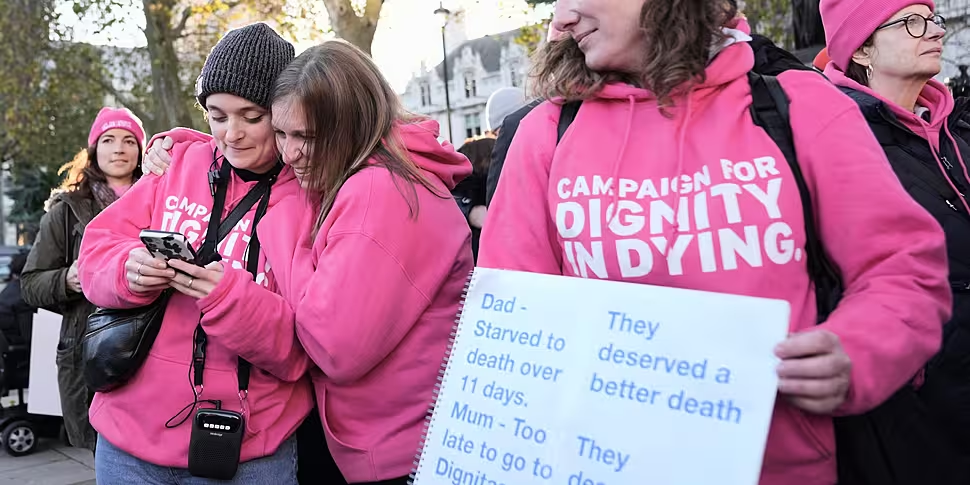Laws around assisted dying are 'very likely’ to make their way to Ireland following a ruling in the UK, according to a spokesperson for an advocacy group.
On Friday, the United Kingdom parliament voted in favour of legalising assisted dying in England and Wales.
Volunteer with End of Life Tom Curran welcomed the move in the UK but told Newstalk that it's not always possible to know how long a person has left.
“One of the things that is in the in the law in the UK – and also is very likely to be here – is this time limit – 6 months to live,” he said.
“It's very difficult to say when a person is going to be dead in 6 months, particularly for neurological diseases.”
 A student nurse taking a pulse on the practice ward at Caledonian University were she is currently studying in Glasgow
A student nurse taking a pulse on the practice ward at Caledonian University were she is currently studying in GlasgowIn 2013, Mr Curran’s partner of 25 years, Marie Fleming, brought a landmark case against the State, arguing that as a sufferer of MS (multiple sclerosis), she had a constitutional right to receive assistance to die.
Both courts found against Ms Fleming, who died in December of 2013.
According to Mr Curran, the nature of Ms Fleming’s condition made it impossible to predict her life expectancy.
“Marie would not have qualified [under the 6 month time limit],” he said.
“When we went to court, her neurologist was asked to give some sort of life expectancy.
“The closest he could put it was two weeks, two months, two years or 20 years.”
Dáil vote
In October, a Dáil vote found in favour of a report into assisted dying.
The vote was in favour of 'noting' the report of the Oireachtas Committee, which called for assisted dying be made legal in limited circumstances.
The vote had no legislation behind it and does not progress the issue in law.
It is, however, an indication that a majority within the current Dáil favour introducing ‘dying with dignity’ laws in Ireland.
The vote passed relatively comfortably, with 76 votes in favour and 53 against.
Many have raised moral and ethical concerns about legalising the practice.









